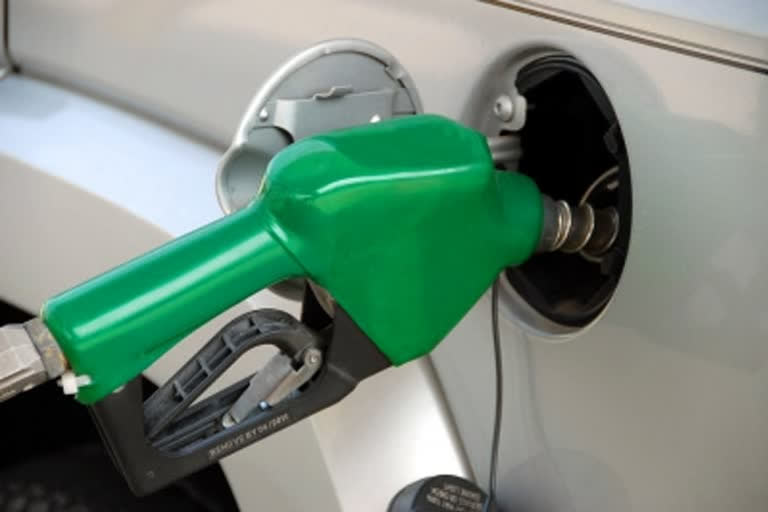Hyderabad (Telangana): As if adding insult to injury in these times of Covid crisis, the intensity of petroleum duty impositions is throwing people into a whirl of difficulties. The increasing fuel prices have caused an uproar all over the country.
At some places, the prices of petrol and diesel have crossed Rs 100 a litre. Though the prices have been nominally slashed, the dip is nothing when compared with the burden imposed by the overall price rise on the budgets of the common people. As Prime Minister Modi expressed his government’s commitment to bring LPG under the GST, the demand to bring petrol and diesel also under GST reverberated in the Parliament.
Having announced on the floor of the house that no such proposal is under consideration, Union Finance Minister Nirmala Sitaraman changed her tack within a week. She is now saying that the power lies with the GST council to bring fuel under GST, in place of the Central Excise, Cess, Surcharges and State government’s VAT.
READ: Youth Congress organises cycle rally to protest rising fuel prices
As soon as the Finance Minister made the announcement, BJP MP Sushil Kumar Modi raised a voice of dissent. Sushil Kumar Modi said that petrol and diesel cannot be brought under GST purview at least for the next 8 to 10 years as such a move would cause an annual revenue loss of Rs 2 lakh crore to the States. The Hon’ble MP has stated that the State and Central governments earn annual tax revenue to the tune of Rs 5 lakh crore on petroleum products. This clearly reveals the extent of the burden imposed both by the Center and the States on petroleum fuels. The governments are competing with each other in imposing taxes on fuels, thus digging holes in people’s pockets.
It has become a common practice with our leaders to blame international petroleum price fluctuations for the increase in domestic petrol fuel rates. They say that the price increase is inevitable as India is dependent on imports for 89 per cent of its crude oil requirements and 53 per cent of cooking gas needs. In the year 2008, when the price of a barrel of crude oil stood at 150 dollars, the price of a litre of petrol was Rs 50 and the cost of a litre of diesel was Rs 35. Now, when the price of crude oil is 60 USD, why are the prices of fuels flying high?
The bitter fact is that the Central and State governments are preventing the price from coming down and are making huge profits through the imposition of various excise duties. The Union Minister of State for Finance has himself told the Parliament that the government’s income from duties on petroleum increased by 556 per cent in the past seven years.
READ: Rahul hits out at Centre over rising fuel prices
The Rangarajan Committee had in the past revealed that various duties comprised 56 per cent of the petrol price and 36 per cent of the diesel price. Today, it is astonishing to note that the excise duties on petroleum have reached 70 percent of the fuel price.
The governments increase fuel price, irrespective of the international prices and scrape their share in the form of various duties. What is it if not the loot of the public? The Parliamentary Standing Committee has made a welcome suggestion for the rationalization of tax impositions on petroleum products.
The RBI Governor Mr Shakti Kanta Das has suggested that the Center and the States should act in coordination to slash the duties on fuel. Estimates indicate that bringing fuels under the purview of GST would be a great relief to the people.
By considering people’s welfare as the topmost priority, the Center should take initiative towards the immediate regularization of fuel prices. It should encourage States also to move in that direction so that the desperate populace of the country finds could get some relief.
READ: Air travel to get expensive as govt hikes airfares’ lower limit by 5 per cent



